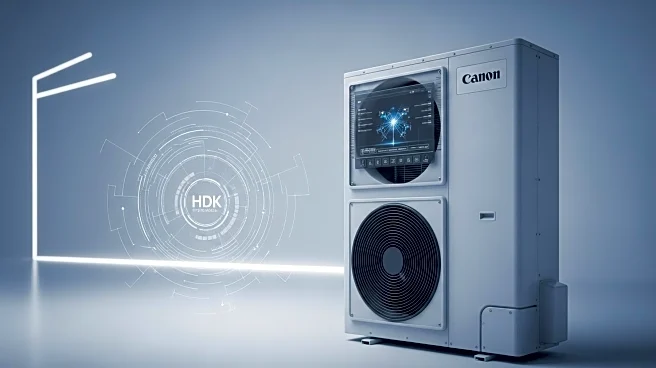What's Happening?
Quilt, a San Francisco-based startup, has developed a two-zone ductless heat pump capable of receiving over-the-air (OTA) updates. In September 2025, the company released an update that increased the indoor units' heating and cooling output to 12 kBtu and 12.6 kBtu, respectively, when both heads run simultaneously. The outdoor compressor's capacity was also boosted from 19,700 BTU/hr to 24,000 BTU/hr for cooling and from 20,500 BTU/hr to 25,200 BTU/hr for heating. This enhancement was achieved without any hardware changes, marking a significant shift in the HVAC industry towards software-defined appliances. Quilt's co-founder, Paul Lambert, likened the system's continuous improvement model to that of software-defined vehicles, emphasizing the role of customer feedback in driving the update.
Why It's Important?
The update represents a significant advancement in the HVAC industry, traditionally dominated by fixed hardware systems. By enabling software-defined improvements, Quilt's approach could lead to more efficient and adaptable heating and cooling solutions, reducing the need for frequent hardware upgrades. This innovation aligns with broader industry trends towards smart, networked HVAC systems that integrate IoT and AI technologies for enhanced performance and energy efficiency. As states like California push for increased adoption of heat pumps to meet climate targets, Quilt's software-driven model could accelerate the transition to more sustainable building technologies, offering potential energy savings and emissions reductions.
What's Next?
Quilt's update may set a precedent for other HVAC manufacturers to adopt similar software-defined models, potentially leading to widespread industry changes. As regulatory pressures increase, particularly with the shift to low-global-warming-potential refrigerants, companies may need to innovate further to comply with new standards. Quilt plans to continue enhancing its systems with future updates, including efficiency optimization algorithms and new user-friendly modes. This ongoing development could further solidify the role of software in transforming HVAC systems, making them more responsive to consumer needs and environmental challenges.
Beyond the Headlines
The shift towards software-defined HVAC systems raises important considerations regarding cybersecurity and data privacy. As these systems become more connected, ensuring the security of user data and protecting against potential hacking threats will be crucial. Additionally, the ability to remotely alter system performance may require updates to safety codes and insurance policies to accommodate these changes. Quilt's approach also highlights the potential for increased accessibility to advanced HVAC technologies, as software updates can enhance system capabilities without the need for costly hardware replacements.









